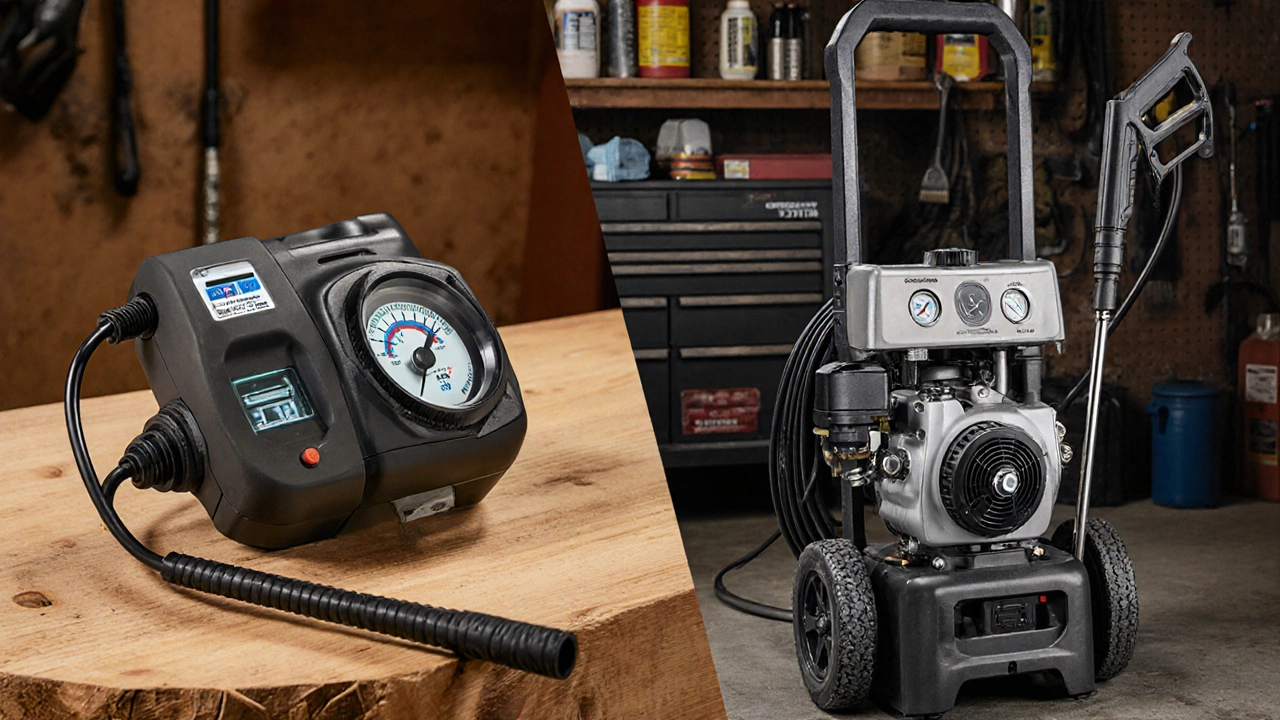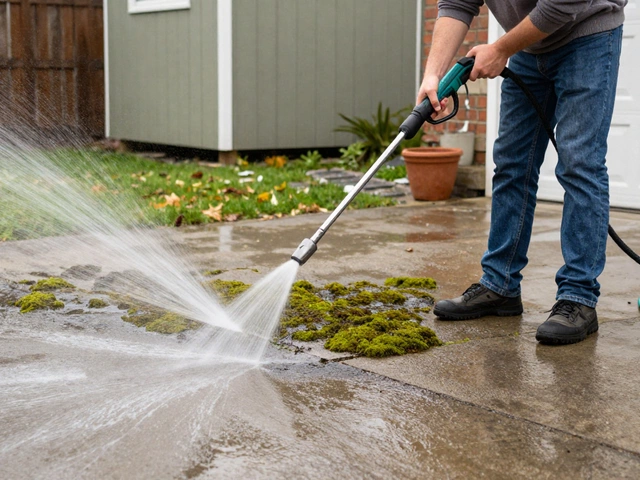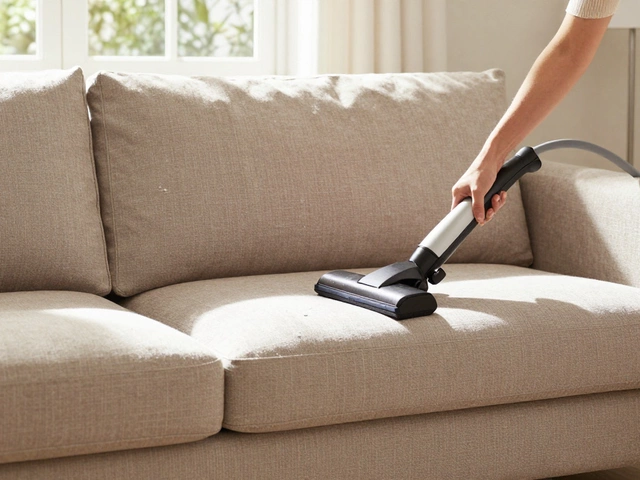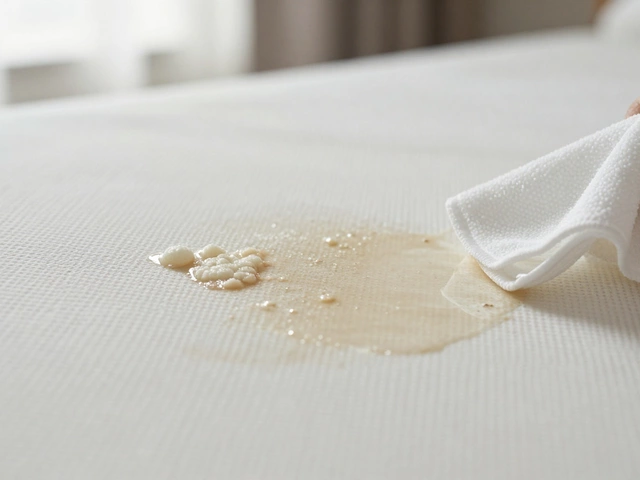Power Washing Profit Calculator
Calculate Your Potential Profit
Estimate your earnings based on your specific business parameters
Your Estimated Results
Based on industry averages from the article: Residential jobs £80-£150, Commercial jobs £500-£2,000, Operating costs 30-35% of revenue
Key Takeaways
- Typical net profit for a solo power‑washing operator ranges from £25,000 to £45,000 per year after the first 6‑12 months.
- Initial equipment spend is usually £1,200‑£3,500 for a reliable commercial‑grade washer.
- Residential jobs (driveways, patios) generate £80‑£150 per job; commercial contracts (store fronts, warehouses) can bring £500‑£2,000 per project.
- Operating costs (fuel, water, chemicals, insurance) average 30‑35% of revenue, leaving a healthy margin if you price right.
- Effective marketing (local SEO, flyers, referral programmes) can cut the break‑even period from 12 months to 6 months.
Understanding the Money Side of Power Washing
Power washing is a high‑pressure cleaning method that blasts away grime, mould, and oil from hard surfaces using a pressurised water stream. It’s widely used for driveways, decks, garage floors, and commercial façades. Because the service delivers visible results quickly, homeowners and businesses are willing to pay a premium for a spotless finish.
When you ask “Is there money in power washing?” the answer hinges on three variables: market demand, pricing strategy, and cost control. In the UK, especially in coastal towns like Brighton, property owners face salty air and algae build‑up, creating a steady demand for regular clean‑ups.
Startup Costs and Break‑Even Timeline
Getting your power‑washing venture off the ground requires upfront capital for equipment, licences, and insurance. Below is a realistic budget for a one‑person operation in 2025:
- Pressure washer: £1,200‑£3,500 (commercial‑grade, 3,000‑4,500PSI, 4‑6GPM). See the comparison table later.
- Water hose, wand set, and safety gear: £150‑£300.
- Cleaning chemicals (de‑greasers, anti‑mould agents): £80‑£150 per month.
- Vehicle (van or ute) - if you already own one, factor only fuel and maintenance: £250‑£400 per month.
- Public liability insurance (required for commercial work): £300‑£600 annually.
- Business registration and accounting software: £100‑£200.
Total initial outlay usually lands between £2,200 and £4,500. Assuming an average month of 12 residential jobs (£120 each) and two small commercial contracts (£800 each), revenue hits roughly £2,560 per month. Subtracting operating costs (~£900) leaves a net profit of £1,660, meaning you break even in about eight months.

Revenue Streams: Residential vs. Commercial
Residential jobs are quick to schedule and provide steady cash flow. Typical services include:
- Driveway cleaning - £80‑£130.
- Patio or deck restoration - £100‑£150.
- Garden fence & deck washing - £70‑£120.
Commercial contracts bring bigger tickets but require more planning and sometimes crew assistance. Common commercial work:
- Storefront façade - £500‑£1,200.
- Warehouse floor - £1,000‑£2,500.
- Industrial equipment degreasing - £300‑£800.
Because commercial jobs often repeat quarterly, they are the key to scaling profit beyond the £30‑£45k annual range.
Equipment Comparison: Electric vs. Gas Pressure Washers
| Feature | Electric | Gas |
|---|---|---|
| Typical PSI | 1,500‑2,500PSI | 3,000‑4,500PSI |
| Flow Rate (GPM) | 1.5‑2.5GPM | 4‑6GPM |
| Power Source | 120‑240V outlet | Petrol engine (≈6‑8HP) |
| Initial Cost (UK) | £600‑£1,200 | £1,200‑£3,500 |
| Best Use Cases | Home driveways, decks, light commercial | Heavy‑duty commercial contracts, large surfaces |
| Noise Level | 60‑70dB | 80‑90dB |
If you’re just testing the market, an electric unit reduces risk and can still deliver profitable residential work. Once you secure regular commercial contracts, the higher flow and pressure of a gas washer become essential for efficiency.
Pricing Strategies That Protect Your Margin
Many newcomers underprice themselves to win jobs, but that erodes profit fast. Use these rules of thumb:
- Base price = (equipment depreciation per hour+fuel+water+chemicals+insurance) × 1.5.
- Equipment depreciation: a £3,000 washer spread over 5years ≈ £0.33 per hour (assuming 3,000hrs total life).
- Charge a minimum of £80 for a 30‑minute driveway, which covers all variable costs and adds a 30‑40% markup.
- Offer bundled packages (driveway + patio) at a 10% discount - upsells increase average ticket without cutting margin.
Remember to factor in travel time. A 20‑minute drive to a nearby suburb should be billed at a flat £15‑£20, or added to the hourly labour rate.

Marketing Tactics That Fill Your Schedule
Visibility is the biggest growth lever for a power‑washing business. Proven low‑cost tactics include:
- Local SEO - claim your Google Business profile, add before‑after photos, and encourage happy customers to leave 5‑star reviews.
- Neighbourhood flyers - a single‑page double‑sided flyer with a QR code to book online can generate 5‑10 new inquiries per month.
- Partnerships - talk to property management firms and let them know you can handle bulk contracts for estates.
- Referral discounts - give existing clients a £20 credit for every new customer they refer.
- Seasonal promos - “Spring Clean Your Driveway” offers drive bookings during the slower winter months.
By combining an online presence with hyper‑local offline outreach, most solo operators fill 80‑90% of their calendar within the first year.
Common Pitfalls and How to Avoid Them
- Under‑estimating water usage: A 4GPM machine uses 960L per hour. Check local water‑use regulations and consider a water‑recovery tank to stay compliant.
- Skipping insurance: A single claim can wipe out your earnings. Public liability coverage (minimum £2million) is a non‑negotiable expense.
- Neglecting equipment maintenance: Replace worn O‑rings and check the pump weekly. Preventive care extends life by 30% and reduces downtime.
- Over‑relying on one revenue channel: Diversify by adding deck sealing, graffiti removal, or pressure‑cleaned gutter services.
Real‑World Example: A Brighton Operator’s Journey
Tom started his power‑washing side gig in early 2023 with a £1,800 electric washer. He spent £300 on a van and £250 on insurance. By focusing on residential driveways and using a simple Google Business page, he booked 15 jobs per month in his first six months, earning £1,200 net profit.
In 2024, Tom saved enough to upgrade to a £2,900 gas unit, doubled his average job size, and landed a contract with a local boutique hotel for quarterly façade cleaning (£1,300 per visit). Today, his annual profit sits at £42,000, comfortably above the national average for solo cleaners.
This case shows that with disciplined cost control and strategic upselling, power washing profit can move from a side hustle to a full‑time livelihood.
Frequently Asked Questions
How much does a commercial‑grade pressure washer cost in the UK?
A reliable commercial‑grade unit (3,000‑4,500PSI, 4‑6GPM) typically ranges from £1,200 to £3,500, depending on brand, warranty, and accessories.
What is the average profit margin for a power‑washing business?
After accounting for fuel, water, chemicals, insurance and vehicle costs, most operators see a net profit margin of 30‑35% of revenue.
Do I need a licence to operate a pressure washer commercially?
In England you don’t need a specific licence, but you must comply with the Water Supply (Water Quality) Regulations and have public liability insurance. Some councils may require a waste‑water disposal permit if you’re cleaning large commercial sites.
How many jobs do I need per month to break even?
With average revenue of £120 per residential job and total monthly costs of about £900, you need roughly 8‑10 jobs per month to cover expenses and start making profit.
Is it worth offering eco‑friendly cleaning solutions?
Yes. Biodegradable detergents cost only a few pence more per litre, appeal to environmentally conscious customers, and can be a differentiator in competitive markets.




